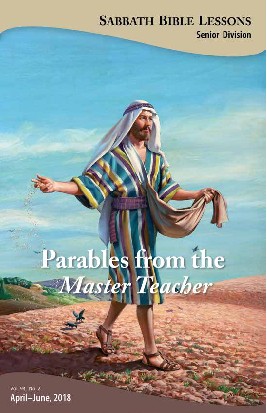Foreword
When Jesus was on earth, He was recognized as a greater teacher than the highest educators of His time. Yet His methods of teaching were simple. He used the common practice of parable teaching to reveal great truths to the people.
“Jesus met the people on their own ground, as one who was acquainted with their perplexities. He made truth beautiful by presenting it in the most direct and simple way. His language was pure, refined, and clear as a running stream. . . . But while His teaching was simple, He spoke as one having authority. This characteristic set His teaching in contrast with that of all others. The rabbis spoke with doubt and hesitancy, as if the Scriptures might be interpreted to mean one thing or exactly the opposite. The hearers were daily involved in greater uncertainty. But Jesus taught the Scriptures as of unquestionable authority. Whatever His subject, it was presented with power, as if His words could not be controverted.”—The Desire of Ages, p. 253.
“Christ had truths to present which the people were unprepared to accept or even to understand. For this reason also He taught them in parables. By connecting His teaching with the scenes of life, experience, or nature, He secured their attention and impressed their hearts. Afterward, as they looked upon the objects that illustrated His lessons, they recalled the words of the divine Teacher. To minds that were open to the Holy Spirit, the significance of the Saviour’s teaching unfolded more and more. Mysteries grew clear, and that which had been hard to grasp became evident. . . .
“In parables He rebuked the hypocrisy and wicked works of those who occupied high positions, and in figurative language clothed truth of so cutting a character that had it been spoken in direct denunciation, they would not have listened to His words, and would speedily have put an end to His ministry. . . .
“So in every line of useful labor and every association of life, He desires us to find a lesson of divine truth. Then our daily toil will no longer absorb our attention and lead us to forget God; it will continually remind us of our Creator and Redeemer. The thought of God will run like a thread of gold through all our homely cares and occupations.”—Christ’s Object Lessons, pp. 21-27.
May God help us to find lessons from our daily work and associations which will draw our thoughts upward to Him. As we study this quarter’s lessons, may we refocus our life so that by beholding Christ and His great love in the common things of daily living we may be changed into His image.
The General Conference Sabbath School Department

